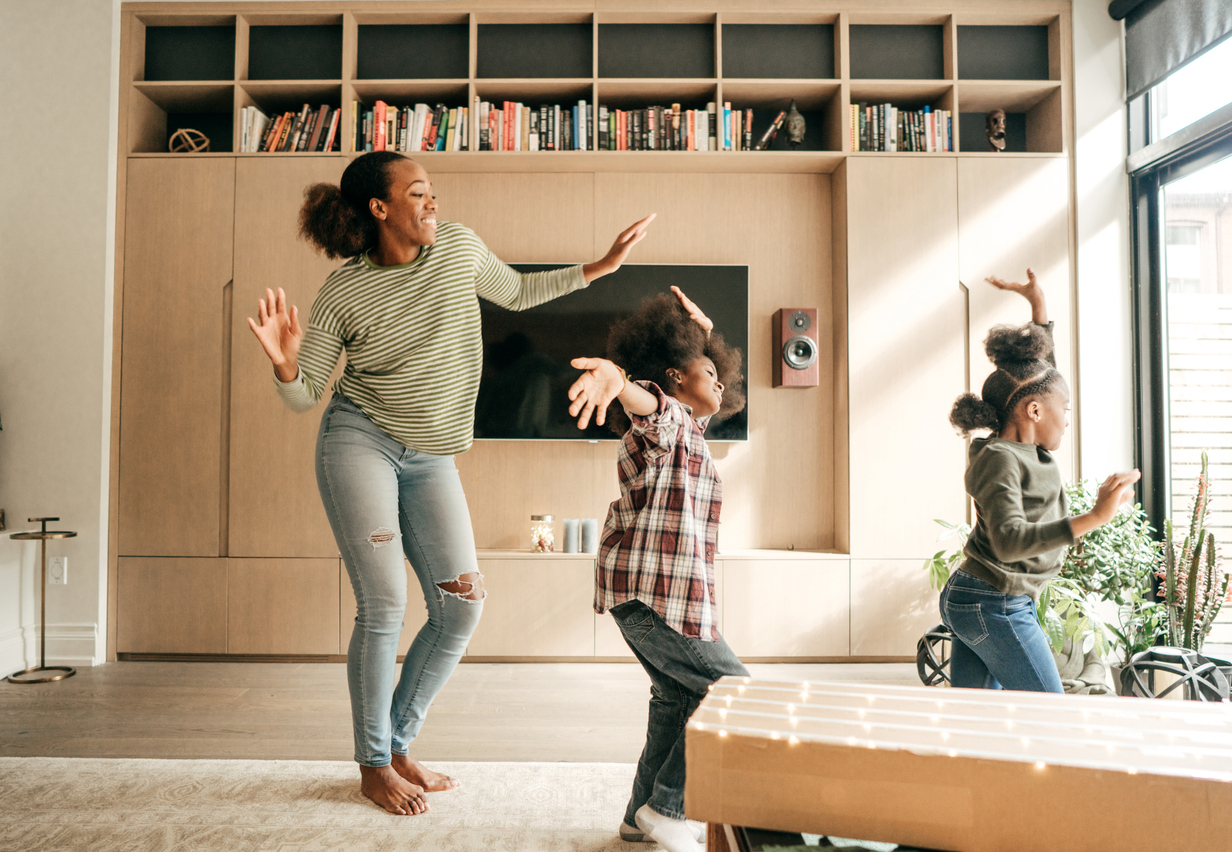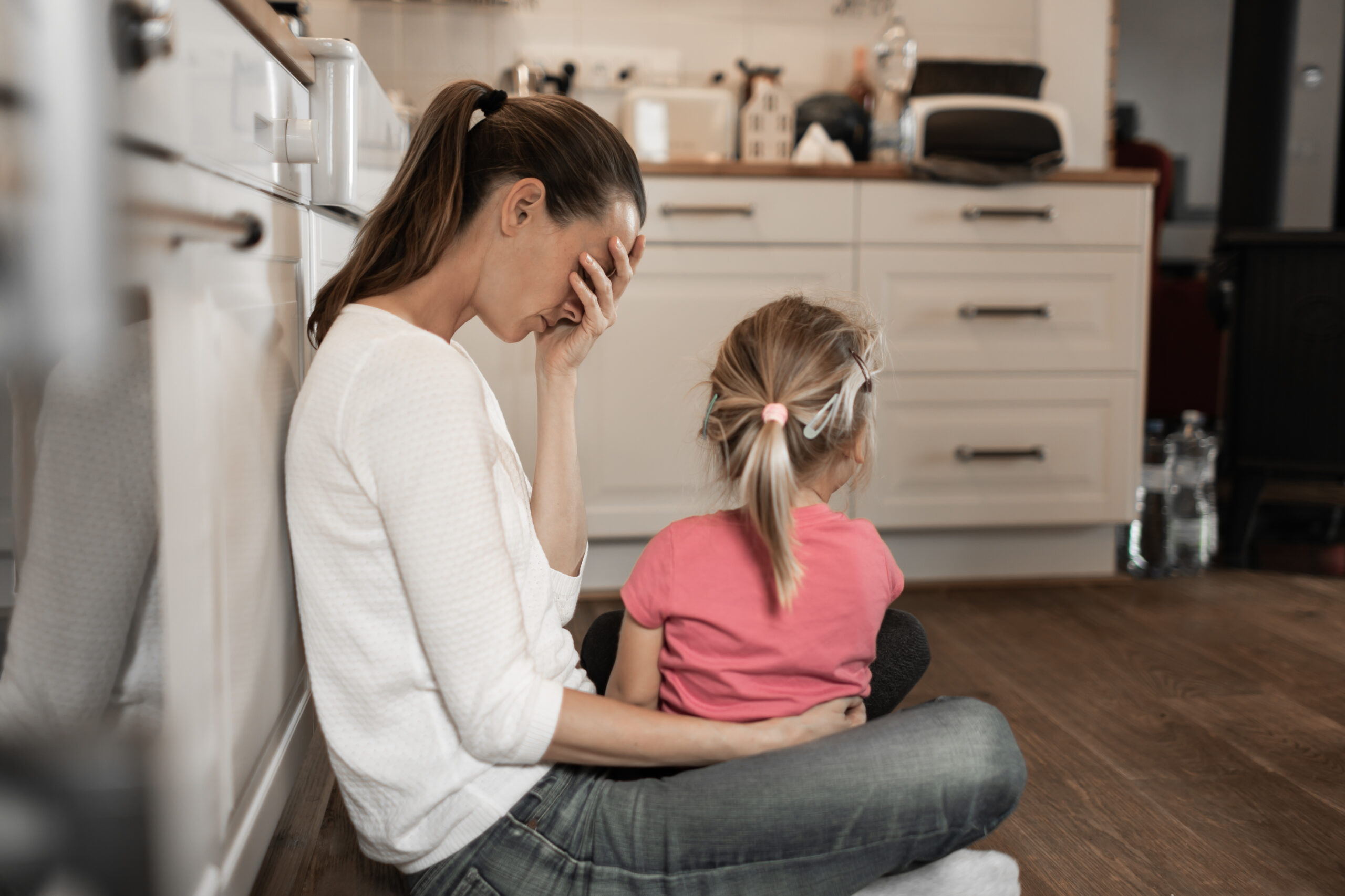What if I drop the kids off and never see them again? I thought, heading to school. I glanced in the rearview mirror at my half-asleep kids. What a horrible thought, but with the state of things in the world today, could you blame me? I gave them both a smooch before they climbed out of the car. “I love you!” I called as they hurried to join the other children outside the school doors. Driving home, I tried to distract myself by planning my day. But my twisting stomach and aching heart, side effects of my catastrophic thinking, didn’t let up.
If you’ve been in my shoes, you know how bad it feels when your mind goes to these dark places. Catastrophic thinking can cause physical ailments like headaches and wreak havoc on our emotional well-being. Staying in a state of fear and anxiety is no way to live. Though it’s not uncommon to have worst-case-scenario thoughts, here are 5 ways for moms to break the bad habit of catastrophic thinking and get back to living the way we’re called to live.
1. Stay in the present.
When we first become moms, worst-case scenarios seemed to lurk around every corner. What if I slip and drop her? Is he going to become addicted to drugs if I give him melatonin tonight? She seems so unaware of her surroundings—does this mean she’ll become a reckless driver? I’ve thought endless dark thoughts like these and more. A lot of moms at all stages do. We worry, and it’s a normal response when we’re faced with uncertainty.
When our brains start reaching into the future with what-if scenarios, we lose sense of the present. Focus instead on your child for who he is right now. He’s just having trouble winding down at night. Or he’s growing into his body, and that’s what’s causing him to stumble here and there. It happens to all kids. So much can change in the future, and we should try not to worry about what-ifs that likely will never happen.
2. Acknowledge that extreme scenarios are unlikely.
When I worried about my child at school, I reminded myself that a real lockdown with an intruder in the building is extremely rare. A more likely scenario would be a practice drill with no cause for alarm. If I worried my child would fall off the monkey bars, I told myself there were loving adults around who could help her. And if she did fall, the likelihood of breaking an arm or leg was slim.
Help yourself by shifting your catastrophic thinking from worst-case scenario to something that feels more likely. Extreme situations are not everyday situations, and they’re not worthy of robbing you of your peace.
3. Stay calm and rational.
I worried about my daughter going to the ER for an allergic reaction because it had happened before. When my mind started going to that place when she was at school, I had to tell myself to be rational. She had a teacher trained to handle health emergencies. And her allergens weren’t allowed in her classroom.
Instead of letting your mind run wild, try to stay calm, even if bad things have happened in the past, making you feel more on edge. “My child is in good hands. Mrs. P has my number if anything goes wrong.” Not allowing yourself to get carried away puts you in control instead of your emotions.
4. Be honest with yourself about accidents.
They happen. In the sixth grade, I broke my wrist in gym class. The teacher stuck a stiff, white baseball plate beneath my arm to support it on the ride to the hospital. I only have vague memories of my mom being there, but I got a great story to tell. Even years later, while supervising my daughter’s school’s playground, I witnessed slips and falls, bumps and bruises, day in and day out. In the five years I held my recess post, I never saw a kid rushed to the hospital. But I did see lots of ice packs handed out along with hugs from all the caring adults and friends.
5. Know that you’re not in control.
Our kids start gaining independence from us as soon as they can walk. They’re making their own choices, and we won’t be able to save them from every misstep along the way. But that’s actually OK because we want our kids to be self-reliant. We want them to gain confidence in themselves. Catastrophic thinking won’t control a situation, so instead, we need to trust that they’re going to be fine—if not better—when we give up control.
Our kids start gaining independence from us as soon as they can walk. Click To TweetCatastrophic thinking can wear you out. What do you do to fight it?










